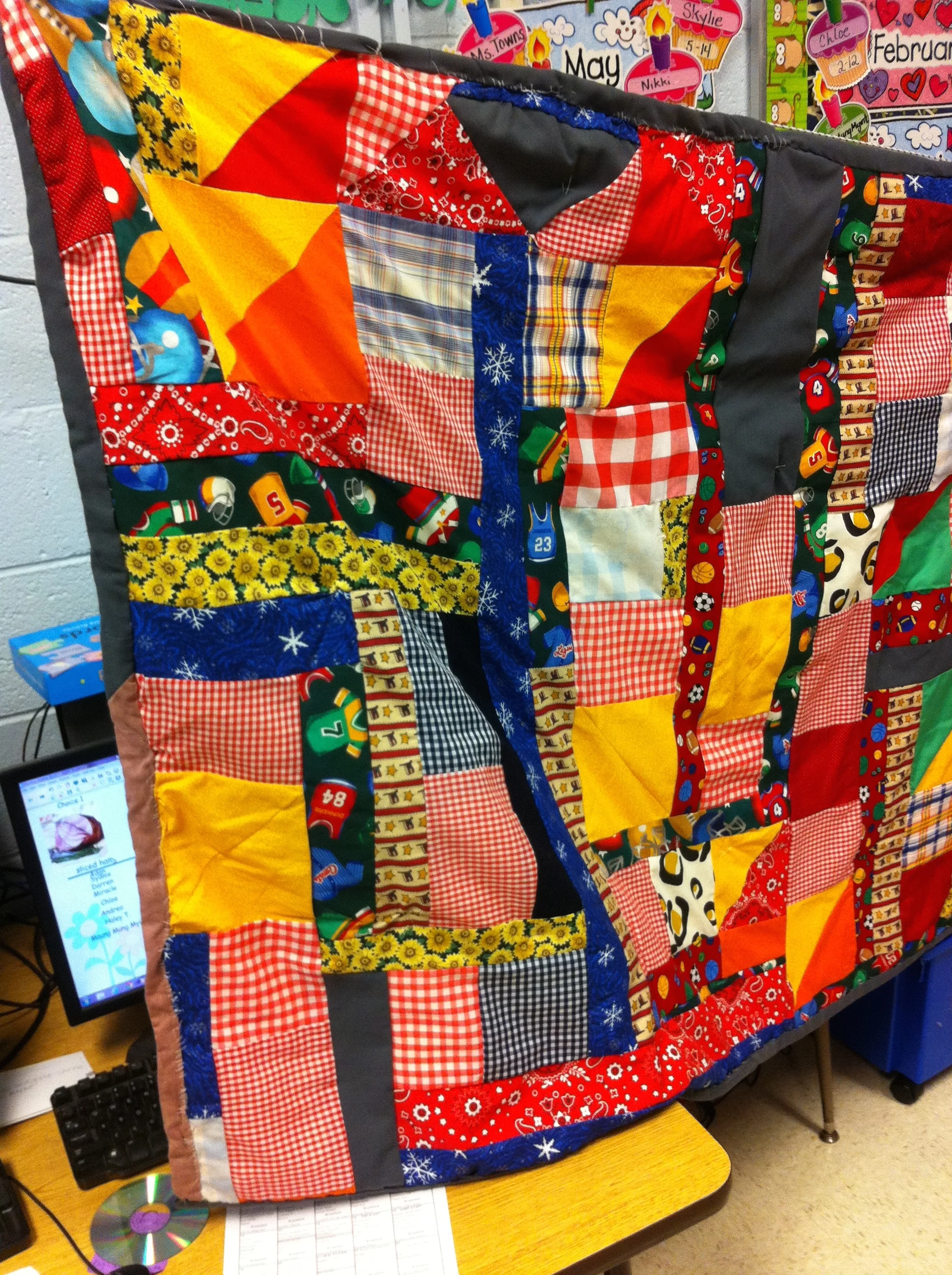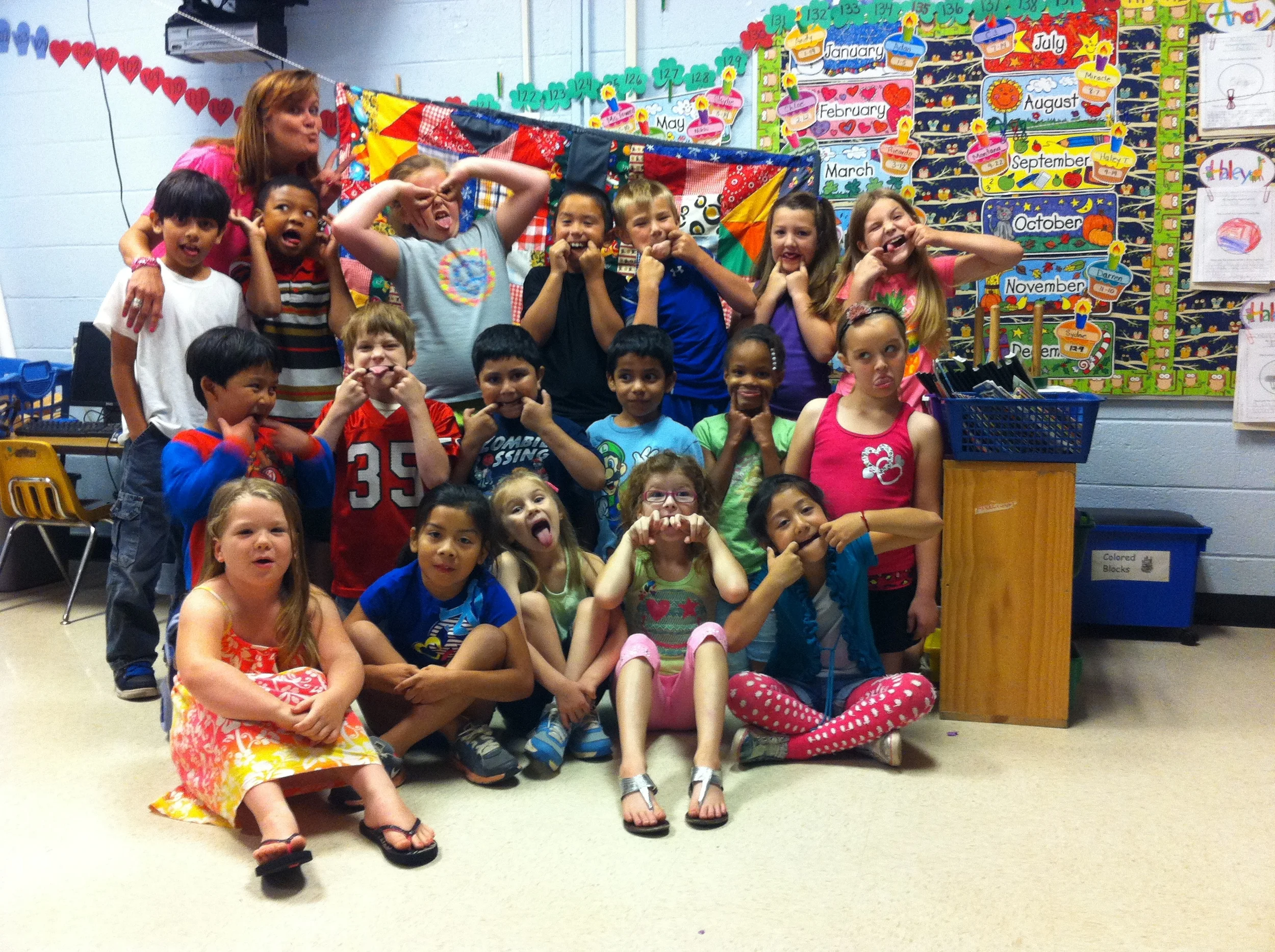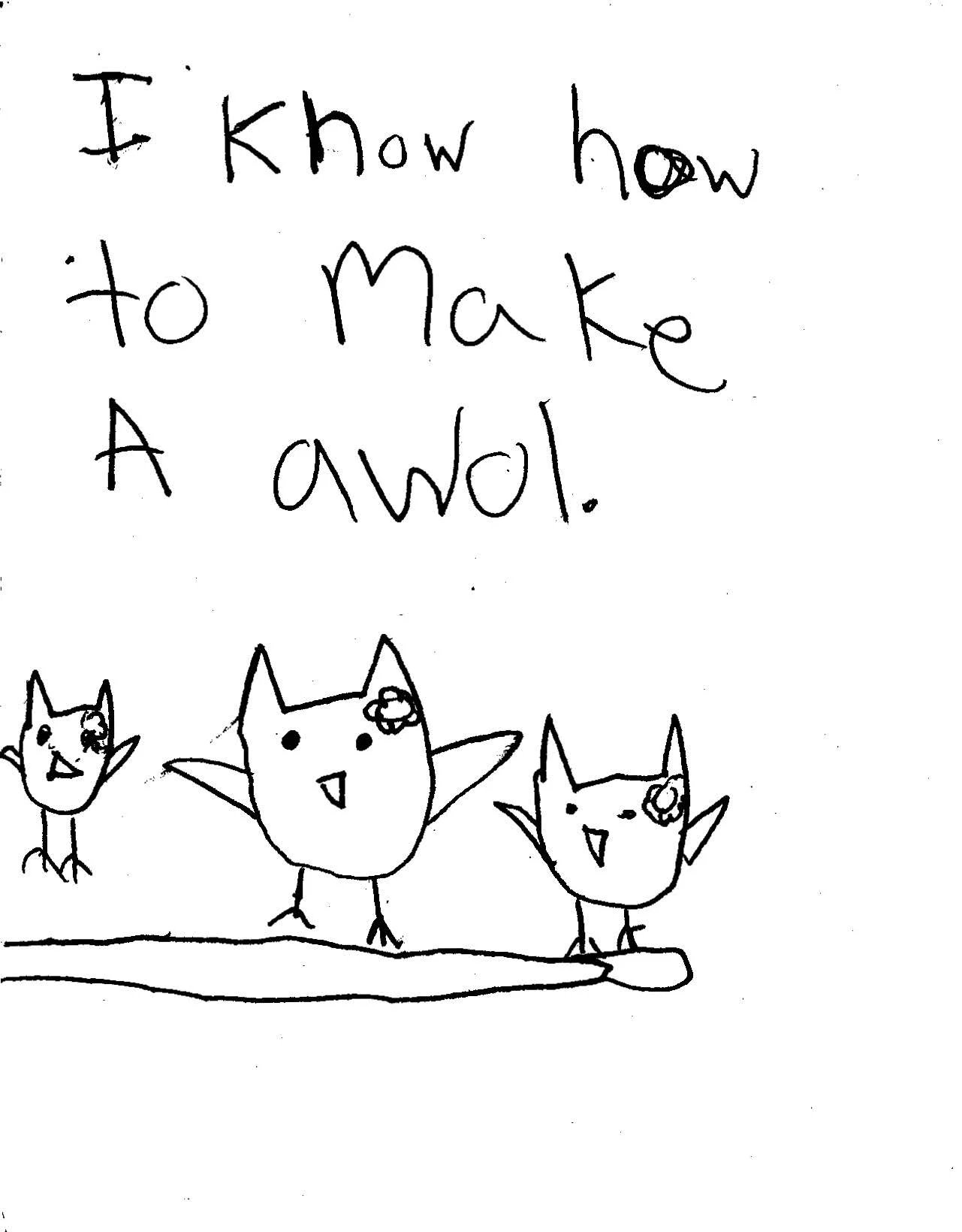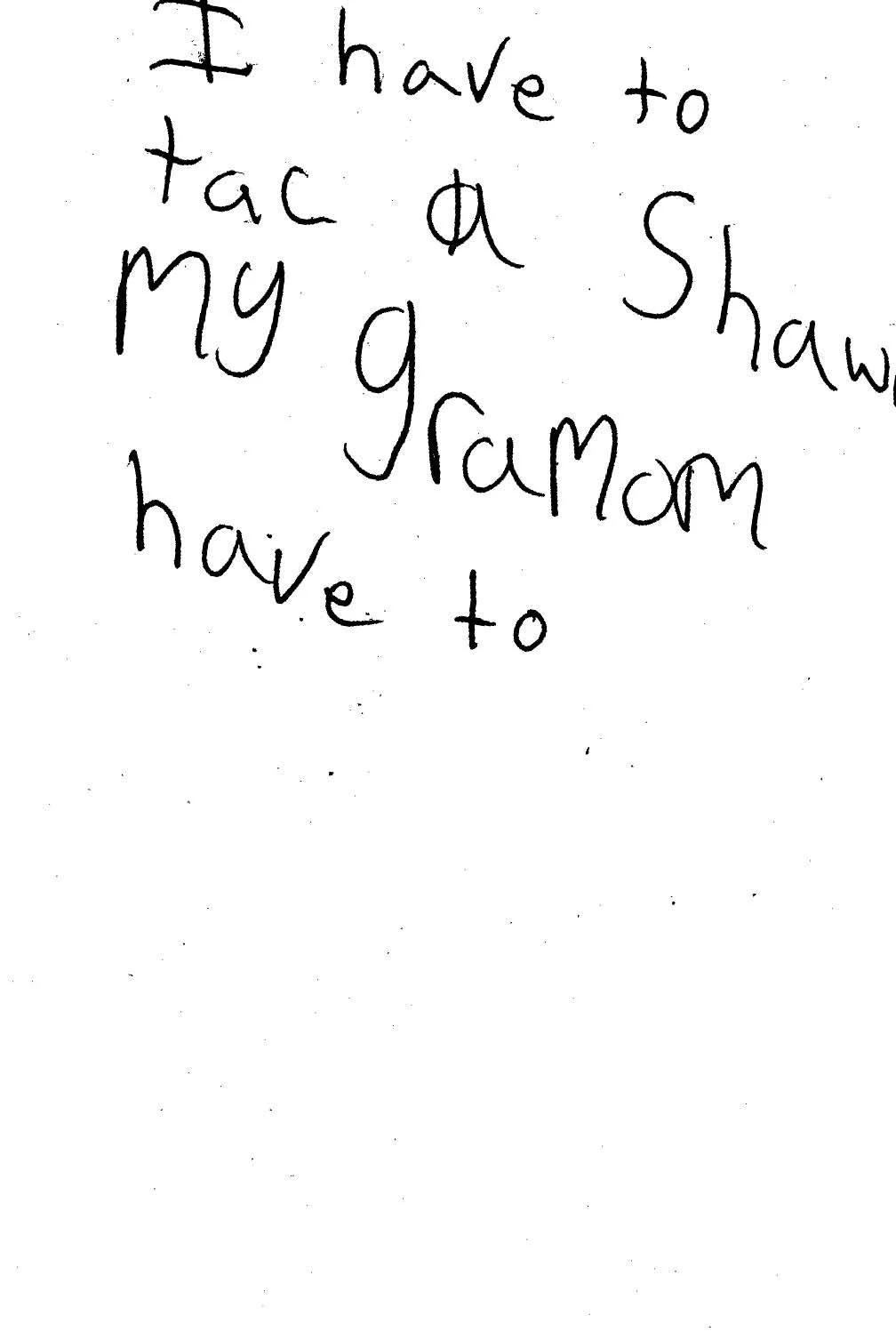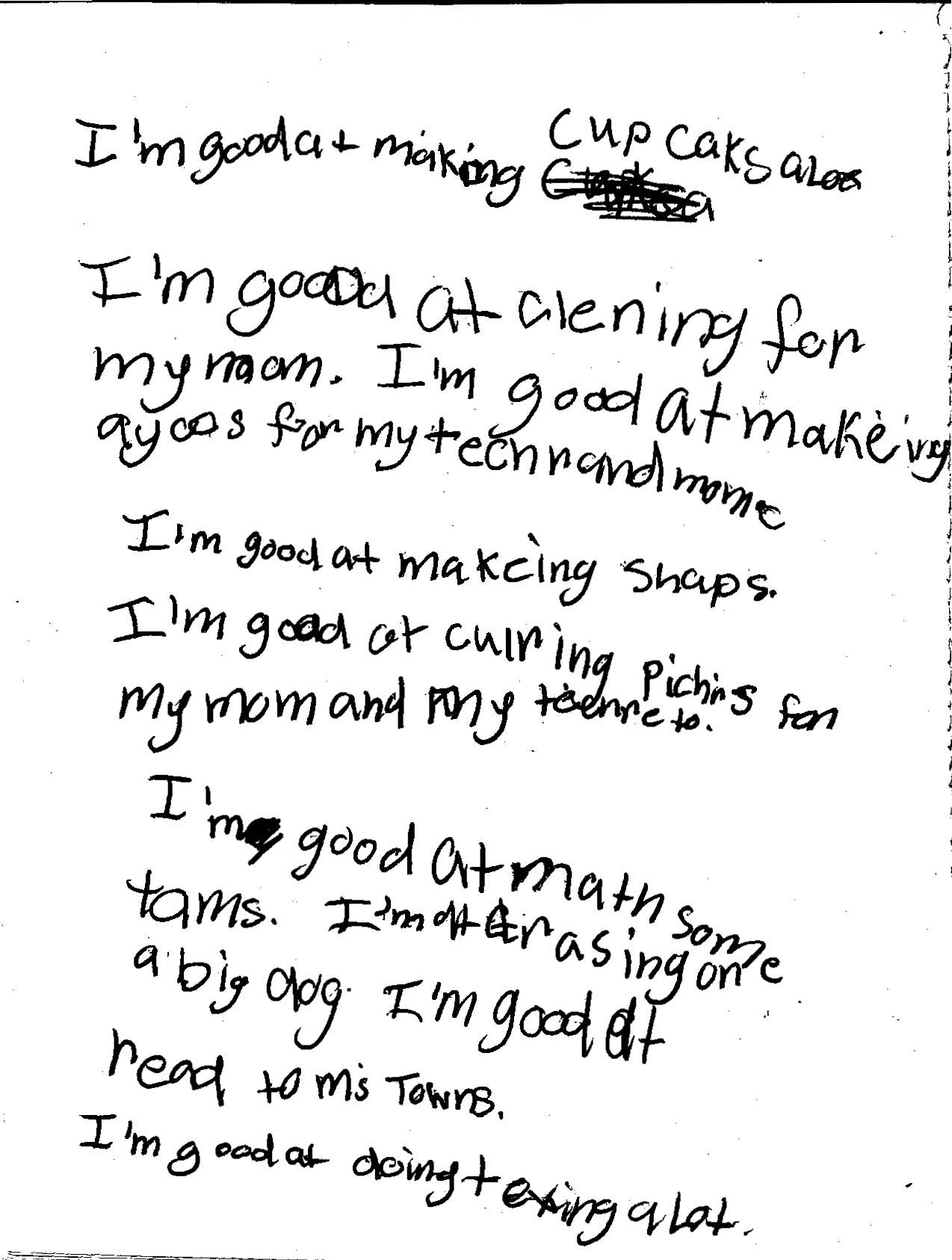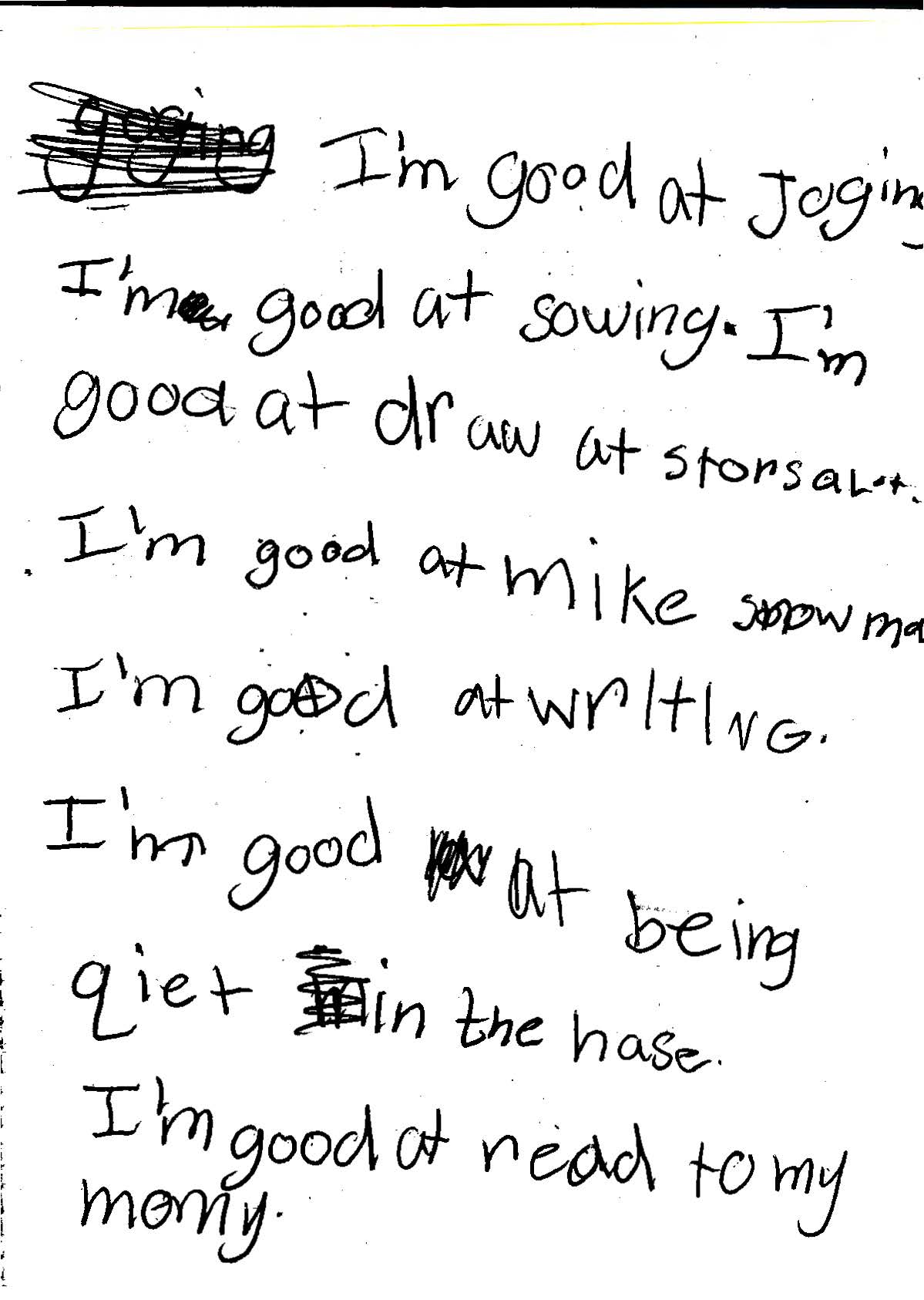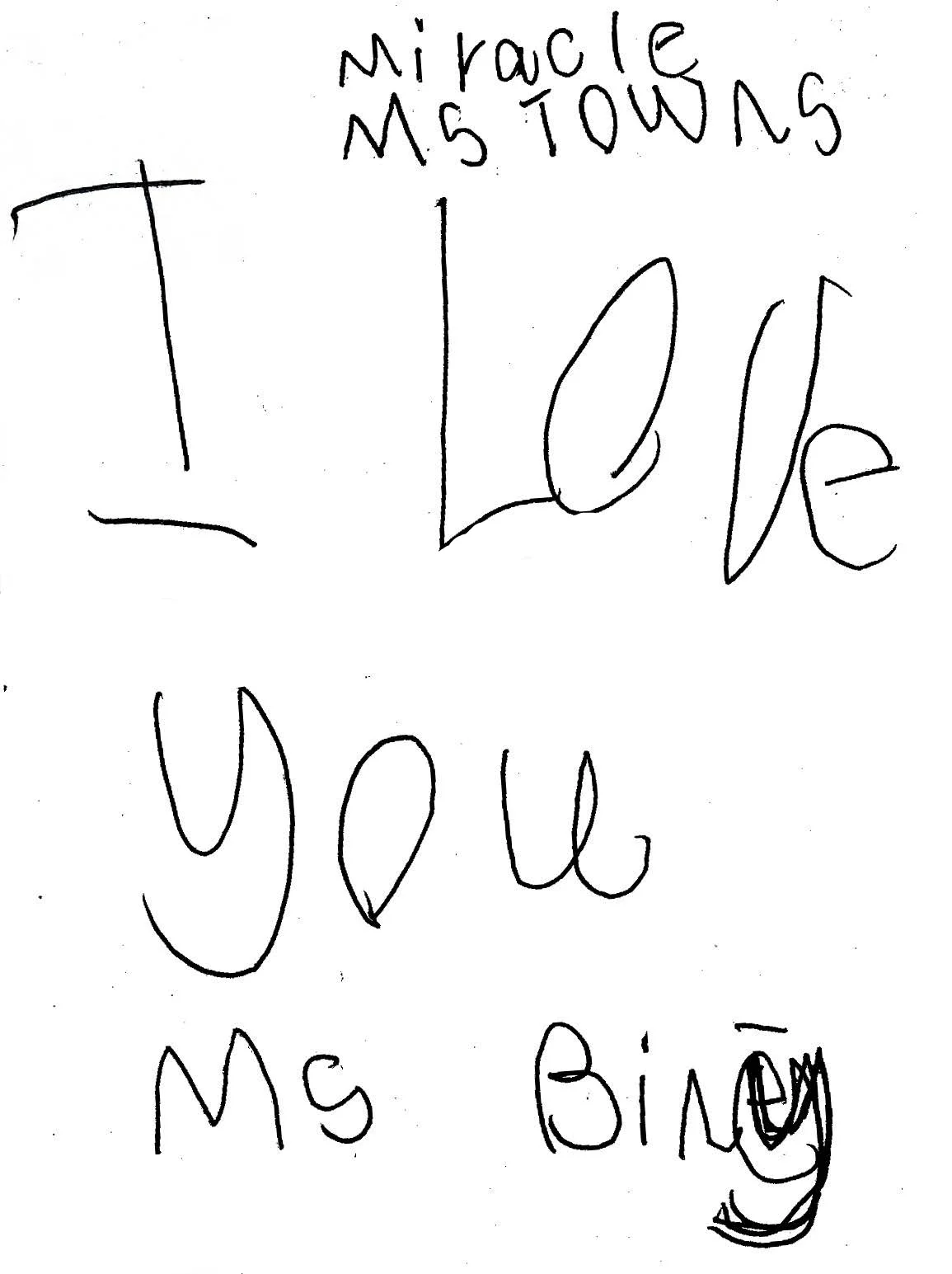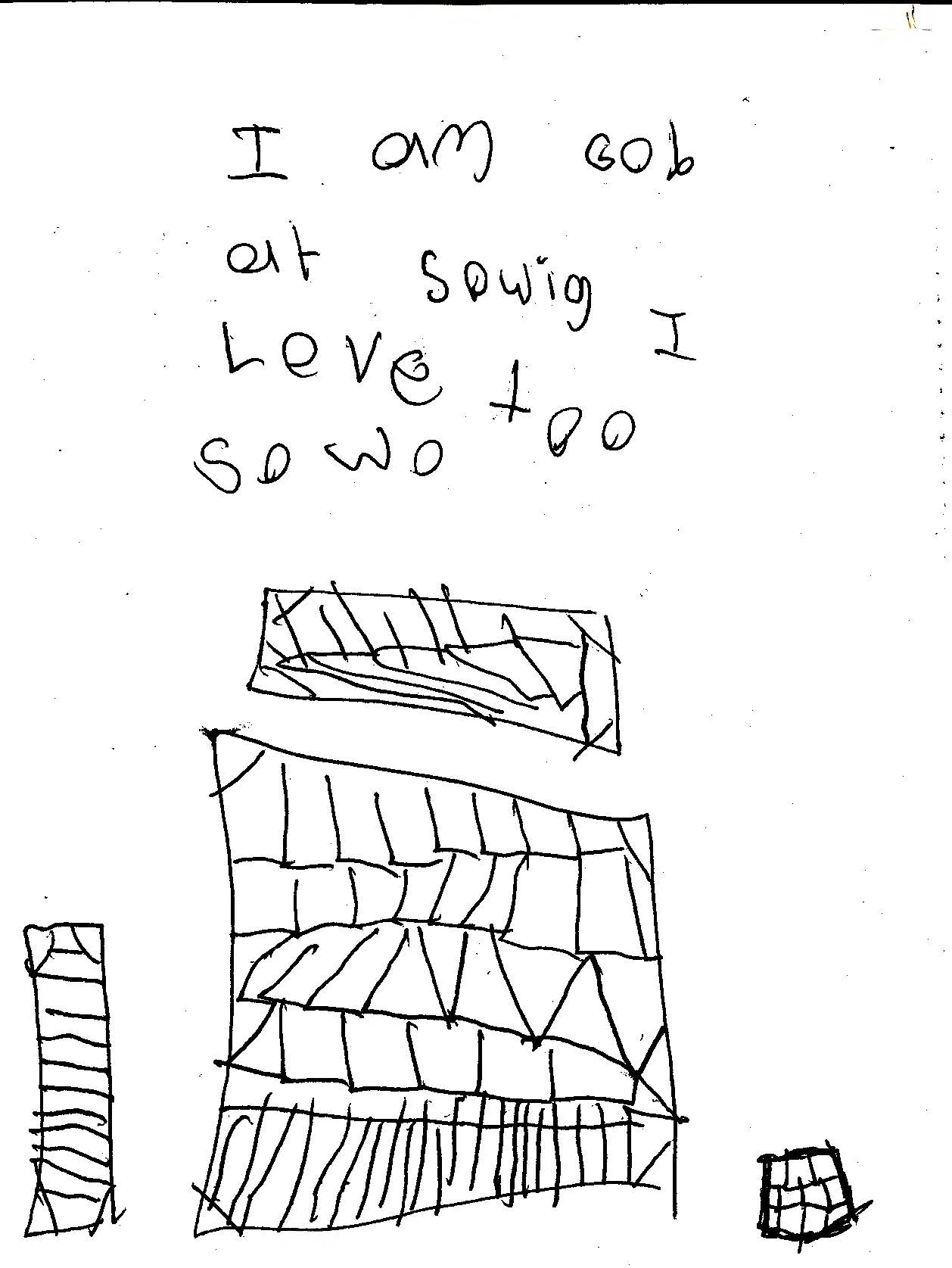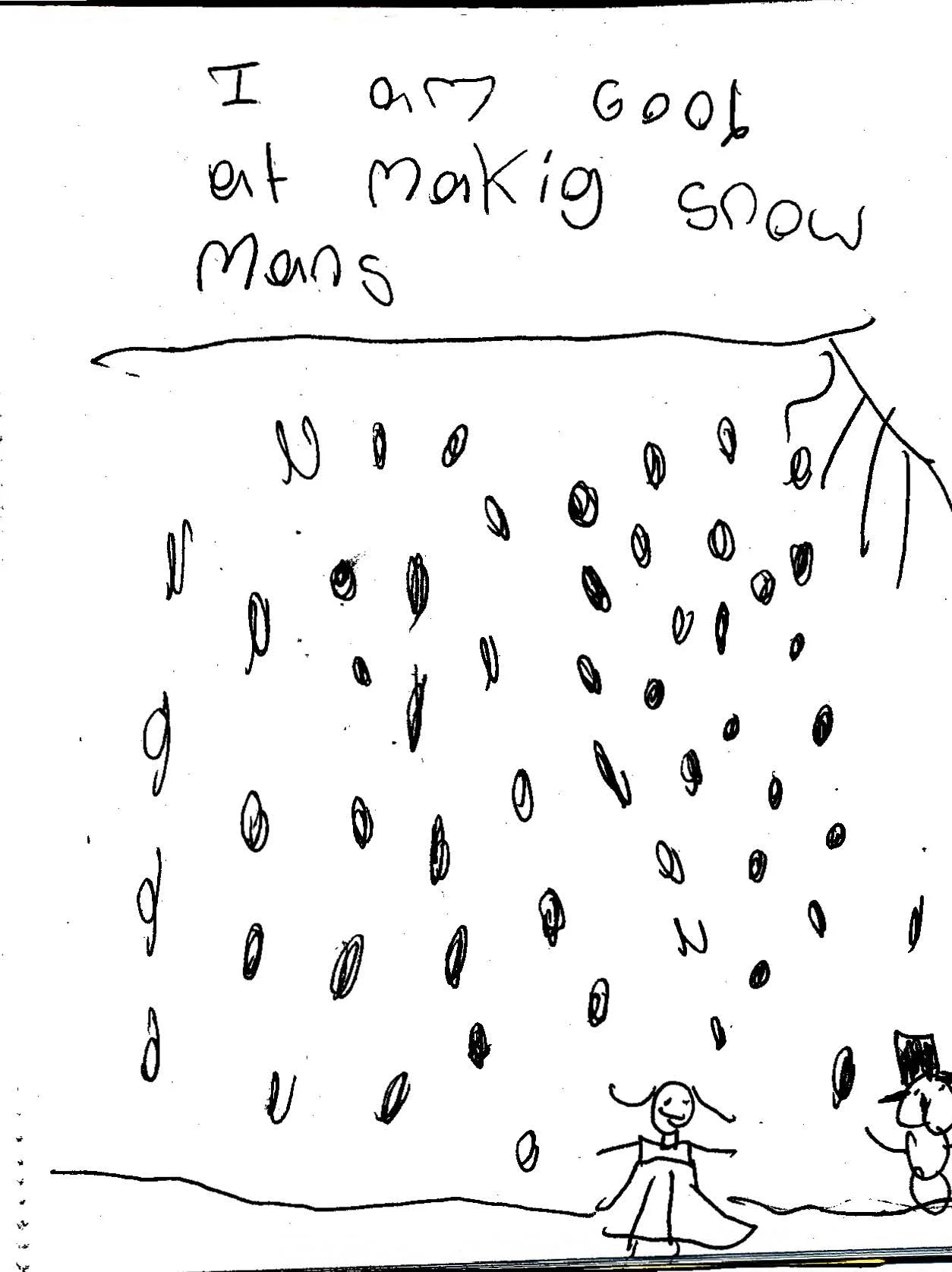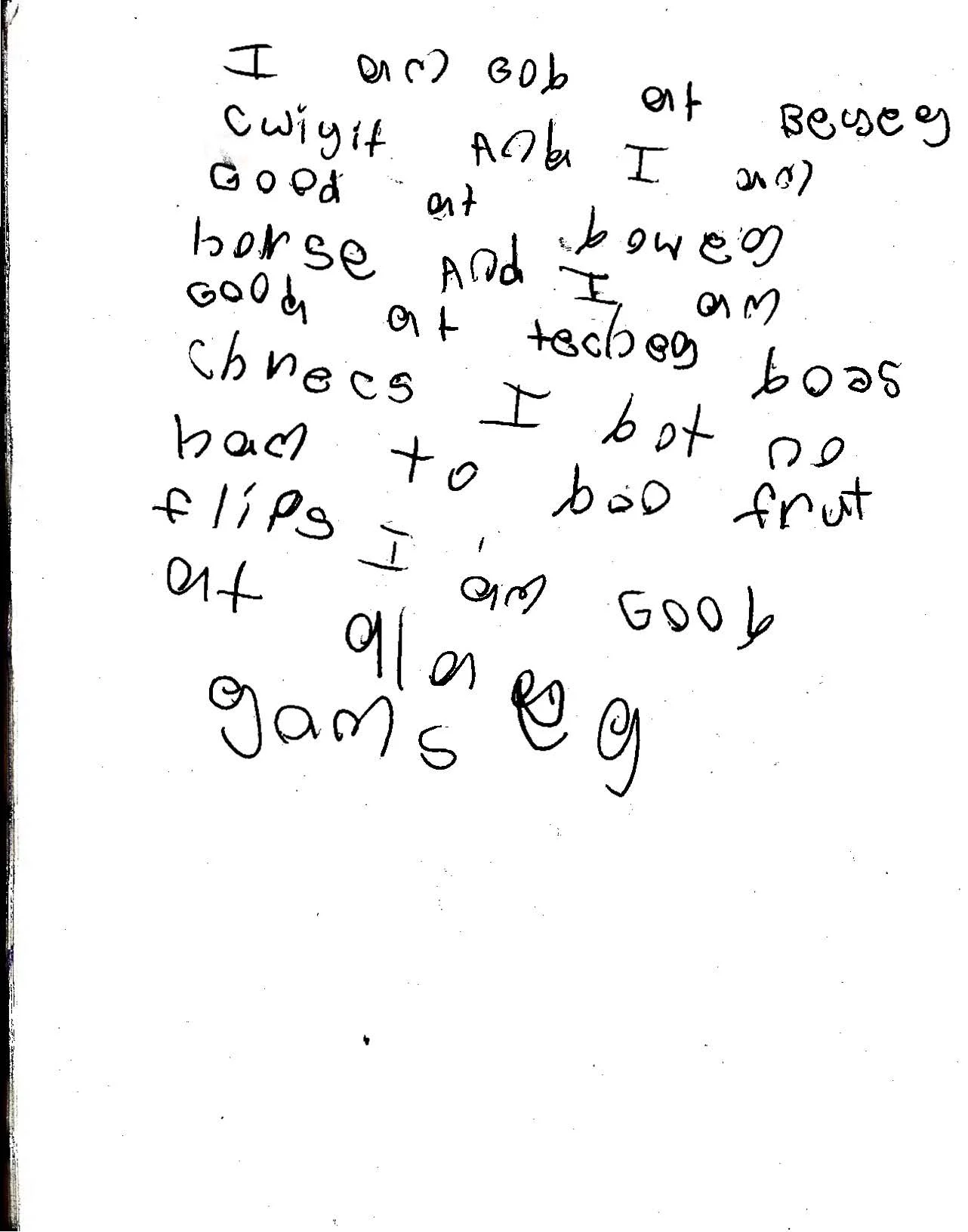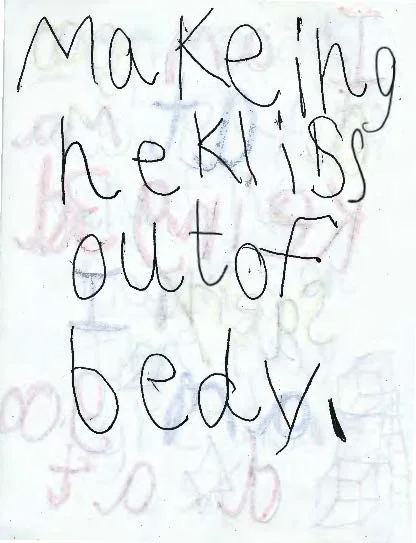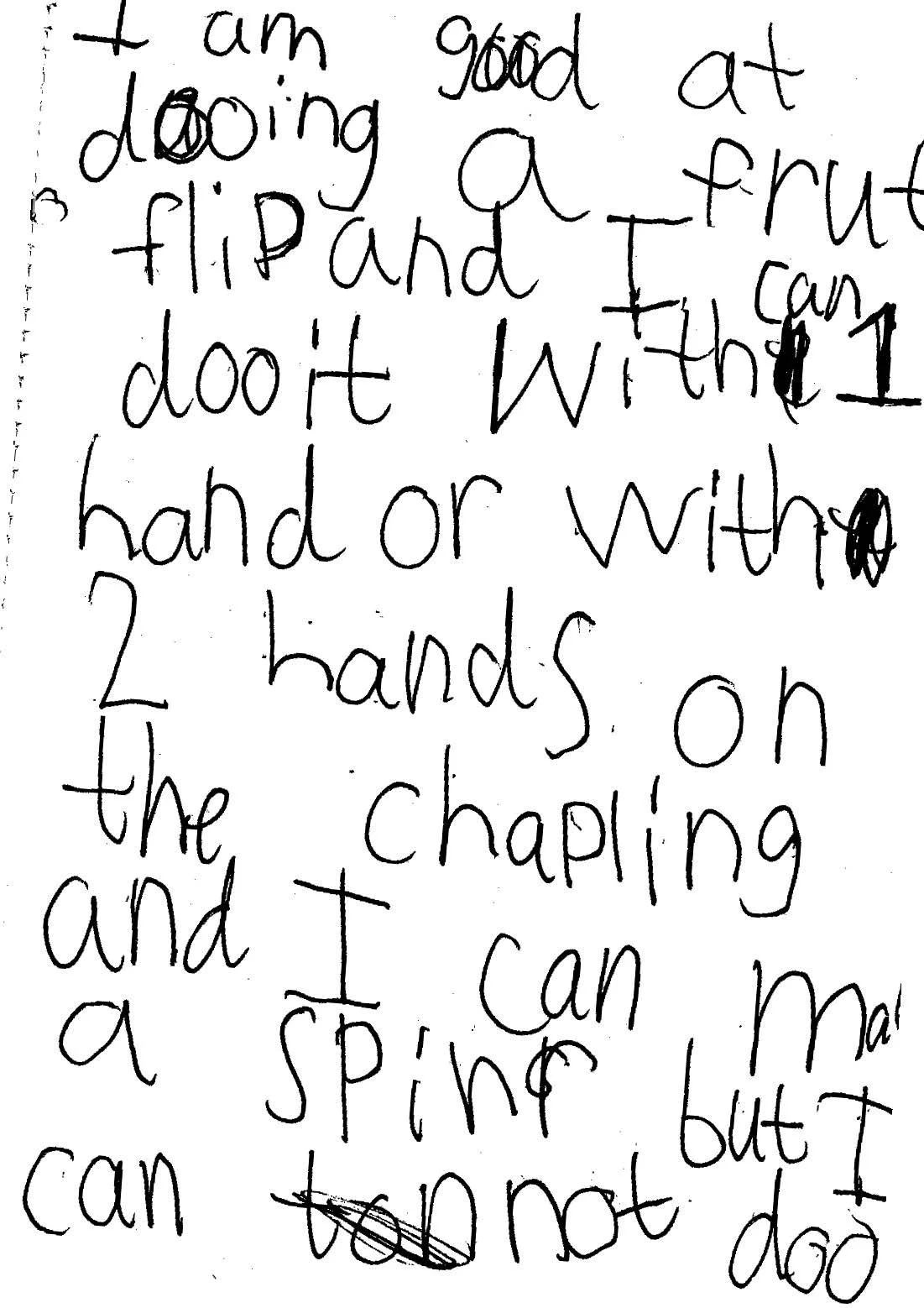B. Ranew
A visit from Ernie Callaway
It started one day when a student face-timed her grandfather during class. Being a new teacher, at that moment I was struggling with classroom management during the last class of the day, and couldn't (regrettably) devote time to speak with him. Her grandfather is Ernie Callaway, sculptor, teacher, and incredibly generous man devoted to passing along the love of ceramics to young adults. A quiet phone call a few weeks later gave fruit to a lesson on bust making by the artist and his daughter Angel Williams. How lucky we were to enjoy time with inspirational adults working with students who deserve extra attention. There certainly was some magic in the room that afternoon, I can't thank Mr. Callaway enough for showing this first year teacher how advantageous it is to bring artists into the classroom.
As sewn in Gee's Bend: A Guide to Elementary Sewing
"To find out what one is fitted to do and to secure an opportunity to do it is the key to happiness."
- John Dewey (1916, p.358)
The (First Grade) Skill Exchange
A skill exchange is an educational structure for a classroom to strengthen the relationships of students with educators and each other as they better understand themselves. In this system, natural skills and abilities are drawn from the students by simply asking, “What are you very good at doing or making?” Their personalities are brought into the classroom to advance their learning in the context of their lives. Students interests are not only welcomed into the classroom but are useful to cohort and teacher.
Everyone, at any age, can benefit from acknowledgment of their abilities and in what way they may be able to contribute to a better way of life for themselves and others through those skills. Our life’s mission is to pinpoint these skills and to use them in a way to bring purpose to our every day. I believe that our abilities are being overshadowed by seemingly greater objectives. These false priorities include framing success as financial growth and material possession. Of course, these are necessary, to some degree, for one to function in our society today. However, I suggest that we adjust our focus to experiences which give rise to unique skills in each of us. It is through skills that our purpose roots us to our community and gives meaning to the presence of our full selves within that setting. I believe a skill exchange has the potential to awaken young children to their own potential and the potential of their peers. The first grade skill exchange seeks to discover how a group of young students can work towards finding what they are fitted to do through a progressive strategy in art education, and together, find happiness.
The following students (all names have been changed) participated in a five week field test of the skill exchange.
Ian
Skill taught: How to draw a horse.
Skill learned: How to draw a pigeon.
Angela
Skill taught: How to draw a pigeon.
Skill learned: How to swing high.
Barney
Skill taught: How to flip on the trampoline with one leg.
Skill learned: How to draw a pigeon.
DJ
Skill taught: How to draw block letters.
Skill learned: How to draw a pigeon. How to draw a 3-deminsional square.
Penelope
Skill taught: How to read a book. How to draw a pigeon. How to run far. How to slide on a slide at the playground.
Skill learned: How to draw a lion. How to draw a three-dimensional square.
Derrick
Skill taught: How to play video games.
Skill learned: How to fish.
Elijah
Skill taught: How to draw lions.
Skill learned: How to play video games.
Nora
Skill taught: How to make necklaces.
Skill learned: How to draw gingerbread people and hand turkeys.
Mallory
Skill taught: How to make a heart necklace. How to make a bracelet.
Skill learned: How to do a flip on the trampoline.
Valerie
Skill taught: How to count to ten.
Skill learned: How to draw a pigeon.
Marigold
Skill taught: How to draw ten.
Skill learned: How to draw an owl.
Thuy Thuong
Carolina
Skill taught: How to draw 3-deminsional squares.
Skill learned: How to make a necklace and bracelet.
George
Skill taught: How to draw cars.
Skill learned: How to draw a pigeon.
Ruby
Skill taught: How to do a flip on the trampoline.
Skill learned: How to make a necklace out of duct tape.
Ricky
Skill taught: How to draw a pigeon.
Skill learned: How to draw a car.
Skylar
Skill taught: How to draw a pigeon.
Skill learned: How to draw a horse.
Sophia
Skill taught: How to swing high.
Skill learned: How to make a bracelet.
The (Graduate Art Seminar) Skill Exchange
The idea of a skill exchange was first brought to my attention in a graduate level art seminar composed of students from a variety of studio art backgrounds. Without prior preparation, the instructor asked each of us, a group of sixteen, to compile a list of our skills. Since there was a variety of arts based skills represented in the class, every list was different. However, skills were not strictly related to art - cleaning expertise, party tricks, and unique talents were also present. We did not discover how these lists would function in the course until after they were collected and we had forgotten they existed. Two months later, the lists reappeared. We were paired with a peer from whom we were to learn a skill of our choosing and vice versa.
Participating in a skill exchange early in my graduate studies highly influenced the focus I was to take in my developing philosophies as an art educator. The idea that one’s unique talents, some seemingly very distant to academic relevance, could contribute to academic life was novel to me. While I am sure an educator along the way had asked me what I was good at doing or making, the notion that my abilities were valued had never been so explicitly clear. In the process of exchanging skill, much more was shared. Skill was the focus, however, there was also a sense of camaraderie that naturally occurred with the teamwork; tools were shared and trusted in the hands of a peer; and ideas, likes and dislikes were exchanged in a free academic environment. In a setting that at first seemed intimidating (after all, this was my first art class in five years), I was able to find my voice and vision with help from classmates.
Firsthand experience of the benefits of self-acknowledgment through art had me immediately contemplate how this system of exchange could benefit other students. Specifically, how could I adapt this system for young art students?
The (Tinker Lab Collective) Skill Exchange
In the summer of 2013, I worked with a group of fellow artists to organize an installation based on these ideas for a local art space in Athens, Georgia. Athens Institution for Contemporary Art (ATHICA) is a nonprofit organization which seeks out local artists to explore what art means in a contemporary sense. We called ourselves Tinker Lab Collective, and we called upon the community of Athens to share what they were able to teach as well as what they wished to learn. The installation collected submissions of both responses for a six week period.
The Tinker Lab Collective skill exchange culminated in a series of micro talks where three people from the community, experts in subjects other than their professional field, gave mini lessons on Chinese ink paintings, sewing by hand and machine, and how to design an effective business card. The submissions from the community guided us towards seeking experts of interest. On a small scale, this installation showed that participants were interested in three aspects of a skill exchange. The aims that were met included: to engage and strengthen connections within the local community, to increase the value through acknowledgment of the public’s abilities, and to create interest in how one can gain knowledge from peers. If all of these could benefit a group of adults, would it have the same positive effect on children?
"We are interested in collecting what people in one community desire to learn and are able to teach. Please share your beliefs through this live forum. We will compile the responses to work toward the creation of a local skill exchange. Thank you for your contribution." -TLC-
The (San Francisco) Skill Exchange
The Skill Exchange San Francisco, established in 2011, “encourages self-reliance through social skill exchange” (Koepell, 2011). Koepell, a designer and creator of the project, establishes monthly gatherings where people in the community can drink, mingle and teach each other handmade skills, from food preparation to bike repair.
References
Dewey, J. (1916). Democracy and education. New York, NY: The MacMillian Company.
Koepell, K. (2011). The Skill Exchange, San Fransisco. http://skillexchangesf.com

















